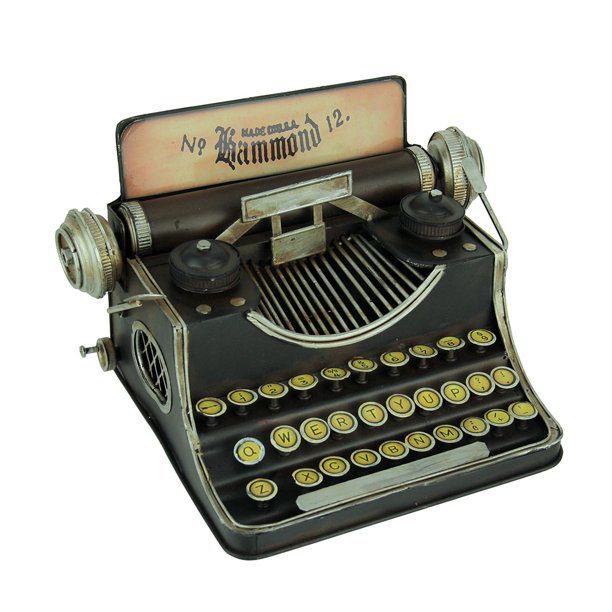 Lowcountry Weekly is pleased to announce the winners of the 8th Annual Sea Island Spirit Writers Short Story Contest. This year, the participants were asked to include the word “quit” somewhere in their story of 750 words or less. There were so many great entries this year, we’re glad we didn’t have to serve as judges. That challenge, as always, was handled by the Sea Island Spirit Writers, and we thank them for their service. Thank you, as well, to everybody who entered the contest, and special congratulations to the winners, listed below! Please enjoy the prize-winning stories published in this issue.
Lowcountry Weekly is pleased to announce the winners of the 8th Annual Sea Island Spirit Writers Short Story Contest. This year, the participants were asked to include the word “quit” somewhere in their story of 750 words or less. There were so many great entries this year, we’re glad we didn’t have to serve as judges. That challenge, as always, was handled by the Sea Island Spirit Writers, and we thank them for their service. Thank you, as well, to everybody who entered the contest, and special congratulations to the winners, listed below! Please enjoy the prize-winning stories published in this issue.
1ST PLACE $100
His Father’s Smile
by Tim Ruth, Chaffee, NY
2ND PLACE $50
Pottery Trips
by Vivian Bikulege, Brevard, NC
3RD PLACE $25
Time Zone
by John Williams, Port Royal, SC
HONORABLE MENTIONS $20
Losing an Old Friend
by Sandra Fischer, Southern Pines, NC
The Job
by M.Z. Thwaite, Beaufort, SC
Quit It!
by Doris Wright, Beaufort, SC
His Father’s Smile
By Tim Ruth
Through the windshield of my rusted-out Ford F-150, I watched the young man stroll into the supermarket. The kid looked to be in his early twenties, and his casual walk told me he didn’t have a care in the world. He didn’t know that very soon he’d be dead. I planned to make sure of that. The parking spot near the front of the store he’d just taken was mine. A blind man could have seen I was waiting to pull into it. But a car coming up the lane delayed my turn. That’s when that little bastard shows up with his shiny subcompact and glides into my spot. I should have quit, let it go, and looked for a space at the back of the packed parking lot. But he did something after he got out of that Toyota that sealed his fate.
He stopped and looked my way like he was noticing me for the first time. Then he smiled and waved at me. SMILED AND WAVED! It wasn’t enough that he took the parking spot; he had to taunt me too. I wrapped my fingers around the steering wheel, gritted my teeth, and glared at him. He looked at me a second or two longer, shrugged his shoulders, and ambled into the store. I sat in the idling F-150 staring at the supermarket door until someone laid on their horn, demanding I move. Reluctantly I complied and headed to the back of the lot.
When I got there, I wheeled the pickup around, opened the glove compartment, and took out my revolver. Then I returned my attention to the storefront. There was no sign of him. I decided that if he weren’t out in ten minutes, I’d go into the store and end him there.
In the distance, thunder rumbled. Fat drops of rain began to plop down, molting my dusty windshield with an odd polka-dot pattern. I flicked on the wipers and watched the worn-out blades trace a thin white arch onto the glass. I didn’t care about the scar they’d etch. Since Barb left, I didn’t care about much. The morning she walked out, she’d told me I’d changed since coming home from the war, that I wasn’t the man she’d married. That damn war took her from me. I checked my watch and saw that ten minutes had passed. It was time I did the taking.
I slid the handgun into the pocket of my old army coat and stepped out of the truck. As I did that, I noticed my target exit the store. He started up the same row of vehicles I was coming down. We advanced toward each other like two gunfighters in an old west showdown. When we were less than twenty yards apart, I placed my hand in my coat pocket and grasped the 38.
The kid locked eyes with me, and a broad smile lit his face. He said, “Hey there, Mr. Collins, I thought that was you.” Something about his smile was familiar, but I didn’t know what. The young man must have noticed my confusion. He pointed to himself and said Danny Rameriz, Hector’s son. I met you at my dad’s memorial service.” It was then that I realized what was familiar about him. The boy had his father’s smile.
Hector had flashed that smile to me as he pulled me out of a burning Humvee in Iraq, saving my life seconds before a sniper’s bullet ended his.
Frantically trying to come up with something to say, I finally asked, “What are you doing here?”
He pointed toward the store, “I work here. See the sign in front of my car.”
The sign read, reserved for Danny Rameriz, employee of the month.”
I stared at the sign I hadn’t noticed earlier, paralyzed by the thoughts of what I’d almost done. Finally, I returned my gaze to Danny and stammered, “Your dad would be very proud.”
He smiled that familiar smile once more. I patted him on the shoulder, then hurried back to my truck. I sobbed there behind the wheel of that Ford for a long time. Sorry for what I’d almost done. Ashamed at what I’d become. I picked up my phone and placed the call Barb had begged me to make more times than I care to remember. Two rings later, the call was answered, “Veterans administration.”
Through my tears, I choked out, “This is Gunnery Sergeant Jonathan Collins. I need help.”
Pottery Trips
By Vivian Bikulege
Marjorie loves mushrooms. She thinks she understands them. For her, they are introverts popping from dirt after days of mountain rain. Their beauty, much like hers, stays buried for a long time until they fruit to find daylight as if breathing for the very first time.
Marjorie lives alone at the top of Henry Mountain. She is a potter and every month she fills boxes with her best work and carries them into town to a small gallery. She hopes tourists, maybe a few locals, will buy one or two pieces. What doesn’t sell in a month, she carries back up the mountain. She has a shed full of ignored pots.
What makes her small bowls and coffee cups unique are the mushroom designs she lovingly carves into the clay. Some are plump with thick caps, and some are slender with tiny jabs from her needle tool, mimicking spores floating from the gills of the make-believe fungi. Every clay creation is finished with a fragment of mushroom pulp embedded into the base. It burns away once Marjorie fires her pottery in the kiln but leaves a lasting mark.
Not long ago, Marjorie thought she heard curious noises in the storage shed. Mice, she thought, and set traps between stacks of hunter green and winter blue bowls. One night, after a loud snap, she trekked a moonlit path from her cabin to the shed. In the corner, on the hard-packed dirt floor, a tiny woman struggled to dislodge her denim skirt caught in the hammer of a mousetrap. She froze when she saw the giant woman, fearful as Marjorie reached down and lifted the trap and its captive.
“Who are you?”
“My name is Brindle.”
“What are you?”
“An elf.”
“I didn’t believe elves were real.”
“We are. We’ve been living on this mountain for a very long time. We moved into your pottery shed for protection. We love your work.”
“We? How many?”
“I think our last census was seventy-six; parents, grandparents, and children. Some left this mountain for Pinnacle but we can’t be sure they made it. Snakes and raccoons make for a treacherous passage.”
“So, I’m not really alone.”
“No, Marjorie. We were here before you bought the place. We watch you collect mushrooms and throw pots. We hear you snore.”
Marjorie and Brindle went quiet. Tiny, watchful eyes and subtle whispers of warm breath took hold of Marjorie’s senses. She pulled back on the hammer to release the pixie. Brindle smoothed her skirt and folded her arms warily watching the big woman.
“Sorry about the trap.” Marjorie placed it on a windowsill, yellow cheddar still stuck to the catch.
“It’s okay. Actually, we’re vegan. Dairy doesn’t set right but hunger of any kind causes one to take risks, don’t you agree? You, for instance. You’ve been eating your mushrooms.”
Brindle was right. At first, Marjorie collected mushrooms to press into her pottery. Then, she gathered morels and chanterelles for salads and omelettes. Now, her quest heightened. She’d discovered Philocybin – magic mushrooms. She ate them to escape the confines of her austere existence and chattering mind.
Small bodies began to emerge from behind coffee cups and saucers. Marjorie buckled onto a wooden stool amazed by the elfin community. Fear took hold. Was she hallucinating or was this real? She closed her eyes. A low buzz, a hum really, grew into clear voices gathering at her feet. As she opened her eyes, she saw elves on the lips of bowls, leaning against shelves, and some began to shimmy her pant legs for a closer look.
“There are so many of you.”
Brindle stood in the center and raised her arms. The elves faced her.
“Winter is coming” she announced. “Days will shorten and temperatures will drop.” She lowered her arms and turned toward Marjorie.
“If you’ll have us, we’ll make a home in your pantry, cook, clean, and tuck you in at night. We are like the mushrooms you cherish, emerging new and whole. We can be family.”
As dawn broke on Henry Mountain, Marjorie stood and walked to her kiln. She gathered kindling and a gas can. She returned to the shed, sprinkled gasoline, lit a match, and watched the building go up in flames. She thought she heard screams but it was the sharp release of water trapped inside the wood and cracking pottery.
There are no such things as elves, she reasoned, only the certainty that she would quit eating mushrooms.
Time Zone
By John Williams
I’m standing on my son’s dock, listening to the rain wind its way up Battery Creek. I pull my poncho strings tighter and flip it’s large hood over my head. One size fits all, I think, tugging at the hood’s long drawstring. The poncho’s military issue, or at least it was when I brought it home from Vietnam some fifty years ago.
My daughter-in-law found it in my old footlocker. My name’s still stenciled across its olive green top: Corporal Donald G. Roberts. It’s my personal time capsule containing only the poncho and a set of tiger fatigues complete with matching jungle boots, things I’d worn on my last patrol on what Snoopy would call a dark and stormy night.
The uniform’s not my original. The Navy corpsman cut my trousers open like a hospital gown. Like Forrest Gump, I’d been shot in the buttocks and it did sting like a bee, a large, pissed off bee that took part of my left cheek.
We didn’t wear hoods on patrol. The pattering rain drops stole your hearing. Better wet than dead. Lots of guys at this LZ were both, lying in the mud, waiting on evac.
Despite my protest, I rode with them. I got the top rack. Below me a morbid cocktail of blood, piss and shit leaked from the body bags and flowed across the steel floor. I looked down at the covered corpses. One was my best friend, James Monroe. He was American royalty . He could have dodged this war, but he thought he was a writer and he wanted the experience. He had this quote: “Nothing bad ever happens to a writer. Everything’s material.”
###
Musty odors seeped from the poncho’s hood. Vietnam air? I wondered. Everything else followed me home. Why not a little pocket of air.
.Around me, lightning flashes reach out, revealing the lowcountry’s beauty in a gray silhouette of oak limbs and palms that quickly fades to black. Thunder follows, a deep, slow, rumble announcing its presence from the darkened heavens. I look back into the trees. It’s a habit I can’t quit. I miss my M16.
Funny, my first memory is of a gun. I still have it though nobody knows. Seventy years later, cocking it provides a painful reminder of the arthritis that racks my joints, thanks to an herbicide that killed more than foliage.
I turn seventy-five tomorrow. Seventy- five’s the first of the half-decade celebrations. Better not wait till eighty. You never know. The odds got worse every year but not in my case. My thumb’s on the wheel. The game’s fixed and I’m the dealer. I need just enough memory to pull it off without leaving too many days on the table. Days are my currency, my sole remaining treasure, but I’m not going to live them trussed up in a diaper.
I’ve saved my opioids from my last three surgeries. Minor stuff, but they say you heal better without pain. I take the pain and palm the pills. The pills are my freedom. I could take them now, but I’m not ready: Too many things I’d miss, like the people who love me more than I deserve. I’m working on my goodbye note. I need them to understand that I leave a little every day. Like MacArthur said, “I just fade, fade away.”
The dementia is slow but relentless, stealing my soul and my memories like the rice patty leeches stole my blood. An unseen foreign invader that’s broken my genetic code and tortures me daily with stirred neurons that produce strange words and converts Volkswagens into buffaloes. Soon I won’t know the difference. The thought terrifies me. It’s like dying without death’s grateful release. Wait too long and I’m doomed to a life sentence without parole.
I watch the storm move east, pulled by the Atlantic to die in the cool, ocean water . Behind me, I’m startled by a dull flashing light. I’m being summoned for supper.
As I walk up, lightning still glows on the horizon, creating a mountain range of clouds. I stare into the darkness and the Annamite Mountains rise from my feet. I know them well, but they belong in Vietnam, forming its spine between two oceans, not here on the South Carolina coast. I drop to one knee and look into the jungle. Monroe’s on point and it’s raining.
It’s always raining in Vietnam.








